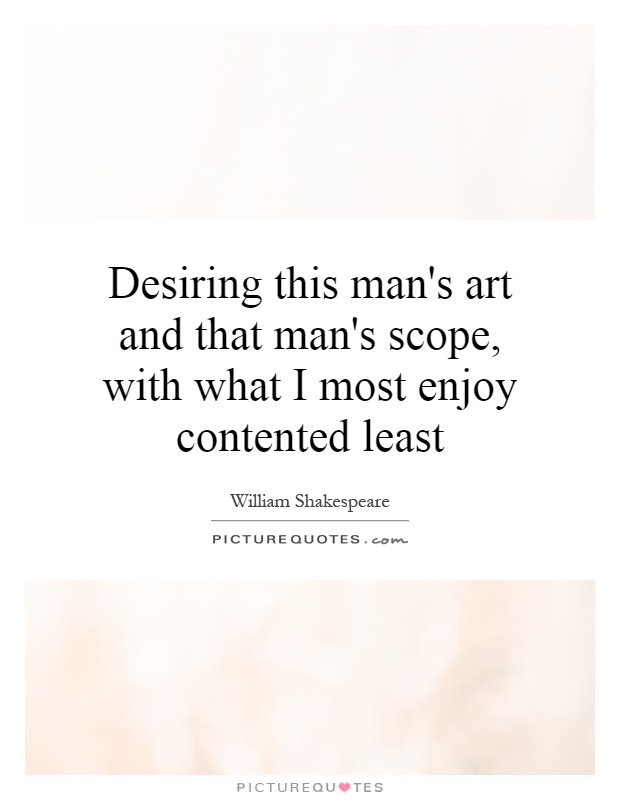Desiring this man's art and that man's scope, with what I most enjoy contented least

Desiring this man's art and that man's scope, with what I most enjoy contented least
In William Shakespeare's Sonnet 29, the speaker expresses feelings of envy towards others who possess qualities or talents that he desires. The opening line, "When, in disgrace with fortune and men's eyes," sets the tone for the rest of the sonnet as the speaker reflects on his own feelings of inadequacy and discontent. He longs for the artistic abilities of one man and the social status of another, but ultimately finds himself unable to find contentment in what he already possesses.The phrase "Desiring this man's art and that man's scope" speaks to the speaker's desire for the artistic talent and opportunities that others seem to effortlessly possess. He envies those who are able to create beautiful works of art or achieve great success in their endeavors. This longing for what others have highlights the speaker's feelings of inadequacy and self-doubt.
The line "with what I most enjoy contented least" reveals the speaker's struggle to find satisfaction in his own life and accomplishments. Despite his efforts to find contentment in his own abilities and circumstances, he is constantly comparing himself to others and feeling dissatisfied with what he has. This internal conflict between desire and contentment is a central theme in the sonnet and reflects the universal human experience of longing for what we do not have.
Throughout the sonnet, the speaker grapples with feelings of envy and discontent, but ultimately finds solace in the love and companionship of another. The final lines of the sonnet express a shift in the speaker's perspective as he realizes that true happiness lies not in the external trappings of success, but in the love and support of those who care for him.












 Friendship Quotes
Friendship Quotes Love Quotes
Love Quotes Life Quotes
Life Quotes Funny Quotes
Funny Quotes Motivational Quotes
Motivational Quotes Inspirational Quotes
Inspirational Quotes